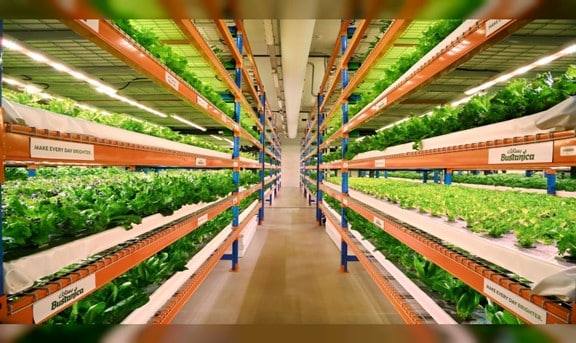
Cairo
Source: Al-Wafd newspaper
Dr. Ali Mohamed Al-Khouri
As Egypt sets its ambitious economic goals, it is necessary for strategic plans to pay attention to the agricultural sector, given its critical importance in achieving food security and future growth. This sector is expected to play an important role globally in the coming years, especially in securing food supplies and reducing the gap between actual food needs and production capabilities.
The Egyptian government allocated a budget of about 116.6 billion pounds for agricultural investments for the fiscal year 2023/2024, an increase of 71% over the expected budget of 68 billion pounds in the year 2022/2023. These investments aim to enhance the productivity of agricultural crops by rates ranging between 5% and 10%, as well as improving the efficiency of land and water use by developing advanced irrigation and drainage systems, introducing new varieties of highly productive and drought-resistant crops, in addition to expanding the use of mechanization and modern agricultural practices.
However, the agricultural sector in Egypt faces major challenges, including a severe water crisis that threatens its ability to meet the growing demand for agricultural water. In addition, the cost of agricultural production remains high due to the high prices of agricultural inputs such as seeds, fertilizers, and pesticides, in addition to agricultural costs. Employment and energy. Infrastructure in rural areas also remains underdeveloped, which hampers efficient agricultural operations and negatively affects the quality of production. In addition, the negative impacts of climate change, such as increased droughts, floods and sandstorms, pose serious threats to agricultural productivity.
These data require the cooperation of all stakeholders in the agricultural sector to form a deeper and more comprehensive understanding of the challenges at hand. Among what farmers cite are concerns about the adequacy of government support and the practical difficulties associated with adopting new technologies. Agribusiness owners stress the need to improve market access and enhance financial services to ensure the profitability and sustainability of agricultural operations. Environmental and agricultural experts call for the adoption of integrated pest management and climate-adapted agricultural techniques to enhance productivity in a sustainable manner.
What these data dictate is the importance of government plans taking into account the implementation of policies that support water-saving technologies and renewable energy solutions to reduce dependence on traditional water and energy sources. In addition, improving infrastructure in rural areas through increased investments in roads, electricity and communications networks would also facilitate more efficient agricultural and market operations. Providing targeted financial products, such as low-interest loans and environmental risk insurance, can greatly assist small and medium-sized agricultural enterprises.
It is necessary to encourage research on genetically modified crops that consume less water and are more resistant to pests and diseases. There is also a need to promote precision farming techniques through various incentives. Developing robust strategies to manage the impacts of climate change, including comprehensive flood and drought management plans, is critical to securing the future of agriculture in Egypt.
It is equally important to promote cooperative agricultural programs that empower farmer groups through shared resources and collective bargaining. Expanding educational programs to train farmers in sustainable farming techniques and business management will help increase productivity and income security in all areas.
In general, adopting innovative solutions and comprehensive measures would help Egypt address existing and future challenges and ensure its ability to continue to lead agricultural innovation and security at the global level.
| About | |
|---|---|
| Initiatives | |
| Knowledge | |
| Services | |
| Media Center | |
| Contact |